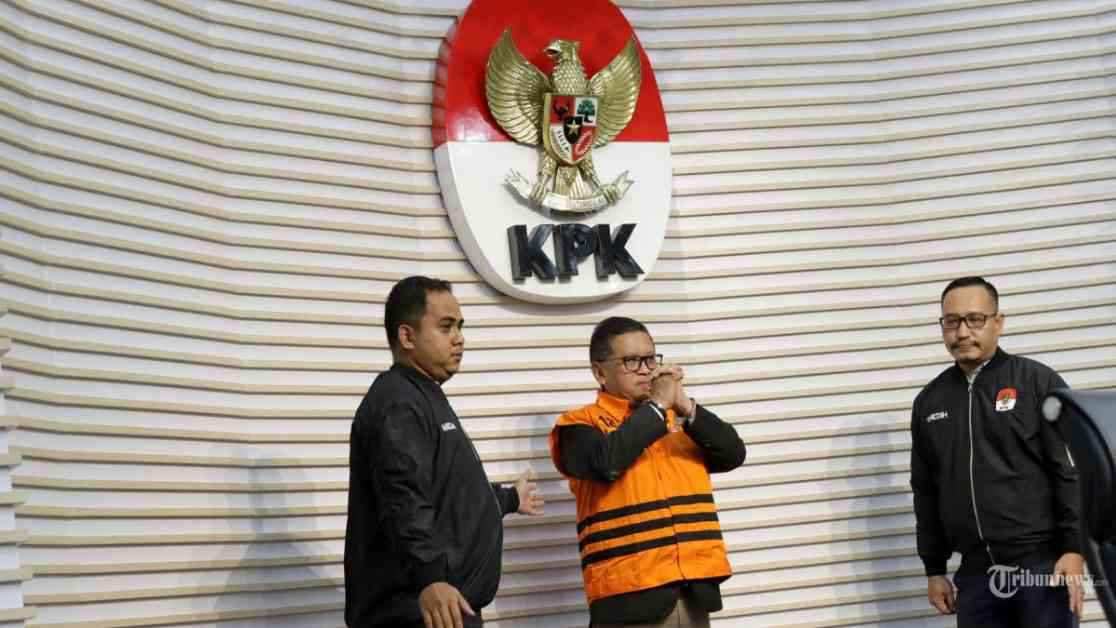Ilham Nurhidayatullah, the General Chairperson of the Central Leadership of the Association of Islamic Student Union (PP Hima Persis), shared his thoughts on the detention of the Secretary-General of the Indonesian Democratic Party of Struggle (PDIP), Hasto Kristiyanto, on Thursday, February 20, 2025. Ilham emphasized the importance of this process amidst public concerns about selective law enforcement in Indonesia, indicating the seriousness of the Prabowo-Gibran administration in combating corruption.
“Ini sesuai yang ditunggu masyarakat. Ini wujud dari penegakan hukum dan keseriusan pemerintahan Presiden Prabowo untuk memberantas korupsi,” Ilham stated. “Sebelumnya, kita bertanya-tanya akan keseriusan penegakan hukum yang dalam hal ini KPK pada tersangka perintahkan penyidikan Mas Hasto.”
Ilham also urged PDIP’s Secretary-General to cooperate and follow legal procedures if he believes himself to be innocent. “Jangan malah menuduh KPK tebang pilih. Malah, menurut saya itu sebaliknya. Penahanan ini membuktikan bahwa KPK tidak tebang pilih walau pada petinggi partai besar sekalipun,” he added.
The Corruption Eradication Commission (KPK) had detained PDIP’s Secretary-General, Hasto Kristiyanto, as a suspect in a bribery case and obstruction of investigation related to fugitive Harun Masiku. Hasto was taken into custody after his second round of questioning as a suspect, exiting the interrogation room on Thursday, February 20, 2025, at 18:08 WIB, wearing an orange detainee vest and handcuffs.
Hasto expressed readiness to face the legal process if detained by the KPK. However, he hoped to avoid detention, believing it would showcase selective law enforcement. “Ketika itu terjadi, semoga tidak, ya ini saya yakini akan menjadi pupuk bagi demokrasi, ini akan jadi benih-benih bagi upaya untuk mewujudkan suatu sistem penegakan hukum yang sebenar-benarnya tanpa tebang pilih,” Hasto remarked.
This interrogation marked Hasto’s second session since being declared a suspect in the bribery case and hindering the investigation into Harun Masiku. Previously, Hasto was questioned as a suspect on Monday, January 13.
KPK had summoned Hasto for questioning on February 17, but he failed to appear, citing a pending pretrial lawsuit.
Expert Insights on Corruption and Law Enforcement
In light of recent events surrounding the detention of Hasto Kristiyanto, experts have weighed in on the broader implications for corruption eradication and law enforcement in Indonesia. According to legal analyst, Maya Sari, this case highlights the challenges faced in ensuring equal application of the law, particularly involving high-profile individuals.
“Cases like these underscore the complexities of tackling corruption and ensuring accountability at all levels of society. The public scrutiny on such cases can serve as a reminder of the importance of transparent and fair legal processes,” Sari emphasized.
Moreover, political commentator, Bambang Susanto, noted that the detention of a prominent political figure like Hasto sends a strong message about the government’s commitment to fighting corruption. “This move demonstrates a willingness to hold even influential figures accountable, which is essential in building public trust in the legal system,” Susanto stated.
Implications for Political Landscape
The detention of Hasto Kristiyanto has sparked discussions about its potential impact on the political landscape in Indonesia. With the Secretary-General of a major political party facing legal troubles, questions arise about the party’s internal dynamics and future leadership.
Political scientist, Dian Pramana, remarked, “The detention of Hasto may lead to reshuffling within PDIP and could influence the party’s strategies moving forward. It also sheds light on the broader issue of political corruption and the need for stronger ethical standards among political elites.”
As the legal proceedings unfold, the public awaits further developments in this case and its ripple effects on the country’s political and legal spheres.
In conclusion, the detention of Hasto Kristiyanto underscores the ongoing battle against corruption in Indonesia and the complexities of ensuring accountability in the political realm. While this case raises questions about selective law enforcement and the integrity of legal processes, it also signals a commitment to upholding justice and transparency at all levels of society. As the story continues to evolve, it serves as a poignant reminder of the importance of ethical governance and fair treatment under the law.






















